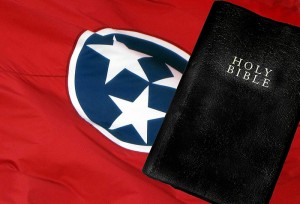Baptist and Reflector
 NASHVILLE — Tennessee Governor Bill Lee issued an executive order April 2 requiring all Tennesseans to remain at home unless engaging in an essential activity or service as defined by the order.
NASHVILLE — Tennessee Governor Bill Lee issued an executive order April 2 requiring all Tennesseans to remain at home unless engaging in an essential activity or service as defined by the order.
The executive order addresses what churches can or cannot do under the executive order with religious ceremonies such as weddings and funerals and providing essential ministries such as food delivery.
“I am confident that with each executive order Governor Lee has the highest interest in the health of every Tennessean in the tough decisions he is making,” observed Randy C. Davis, president and executive director of the Tennessee Baptist Mission Board.
“As a vast network of more than 3,000 churches, we have the responsibility to do our part to achieve victory over the invisible enemy of COVID-19. I have spoken with hundreds of pastors over the last two weeks, and it is obvious our churches are respecting and honoring these executive orders with patience and diligence.”
The Tennessee Baptist Mission Board staff has provided a list of Questions and Answers to enable churches to make well informed decisions:
1. Can our church still legally meet in person?
Under the strictest interpretation of the Order, and unless prohibited by a stronger local ordinance or order, a church is not prohibited from meeting, provided it can ensure that attendees will maintain proper social distancing and other Health Guidelines “to the greatest extent practicable.”
2. What about a Drive-In Church?
Again, it could be held unless prohibited by local authority, provided that the church can ensure that attendees will maintain proper social distancing and other Health Guidelines “to the greatest extent practicable,” including: not rolling down windows, parking at least six feet from other cars, remaining in the car for the full time. The church should not open its doors for any reason, including making bathrooms available. Churches should check with local authorities before proceeding.
3. Are there legal ramifications if we do decide to meet?
This is not an extensively explored section of law. Churches always have a duty to protect attendees based on the standards of care generally expected in a community. The Governor, by issuing these Executive Orders, has raised the standard of care expectation. So, if an individual attending a service during this time of the stay-at-home order is infected, there is a good possibility that the individual, or potentially the surviving family, will claim that the Church failed to exercise the expected standard of care.
4. How will our community react if we decide to meet? Will it draw them to the church or push them away?
Only your church can answer that question. While some will support your right to meet, others will condemn the Church for raising the risk of spreading the virus in your community. This could become a long-held grudge by some that will last long past the COVID-19 pandemic.
5. Can we continue to provide the ministries we have begun for those who are most affected by the pandemic?
Yes, this is specifically permitted as an Essential Service. Churches should go to great lengths to follow Health Guidelines even to the extreme.
6. Is this an overreach of authority by the Governor and a violation of our First Amendment rights?
Since the Order specifically allows for religious celebrations and services, it would be hard to argue that the First Amendment right to worship has been violated. The government has a responsibility to protect the health and welfare of the population and does this through building codes, sexual harassment laws, and many other regulations that apply to churches. Requiring certain practices during worship that are intended to further protect the health of the participants would also be hard to argue against. If churches had been singled out to close and if the state could not provide a compelling interest for the required Health Guidelines, then there might be an argument against the Order. B&R
